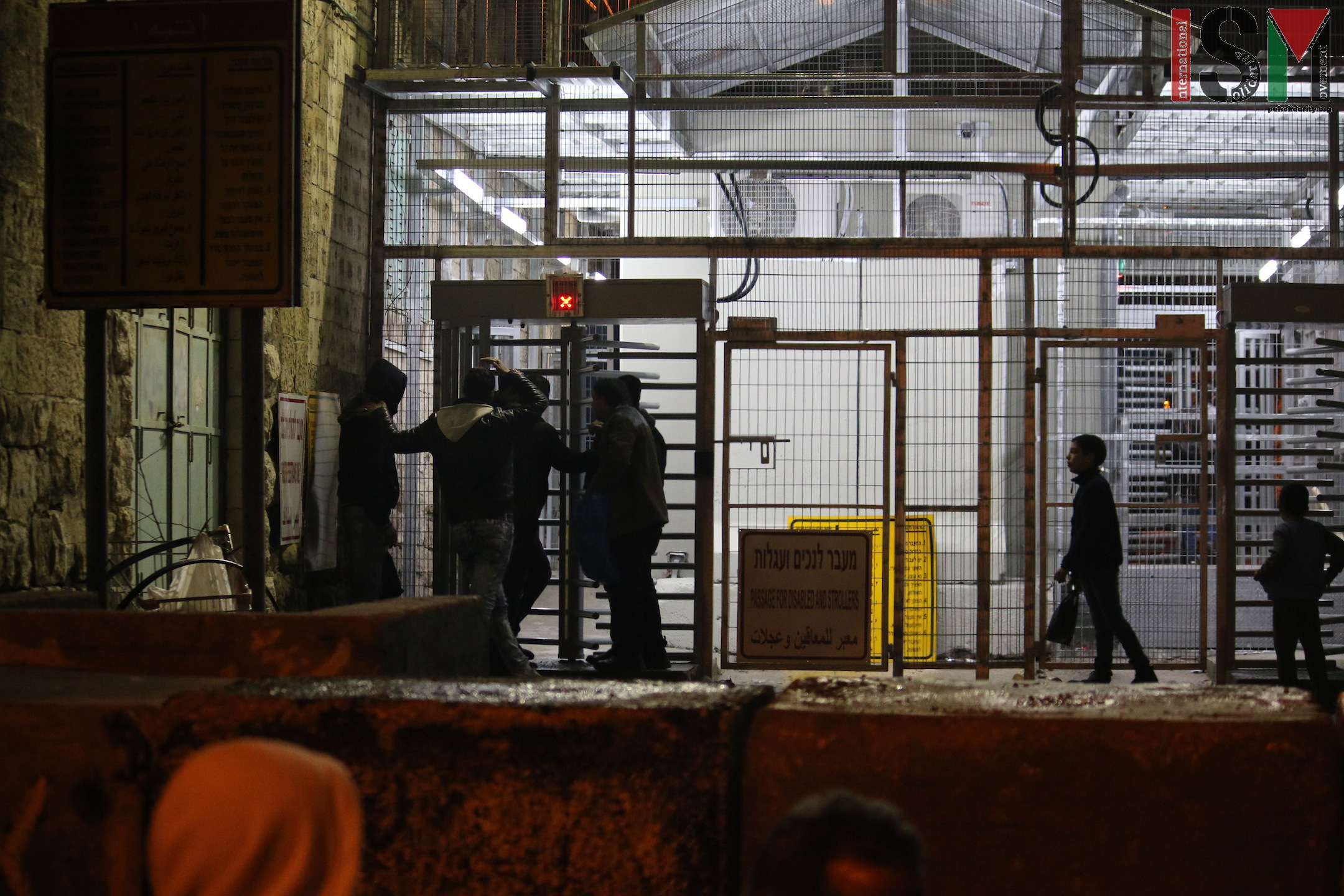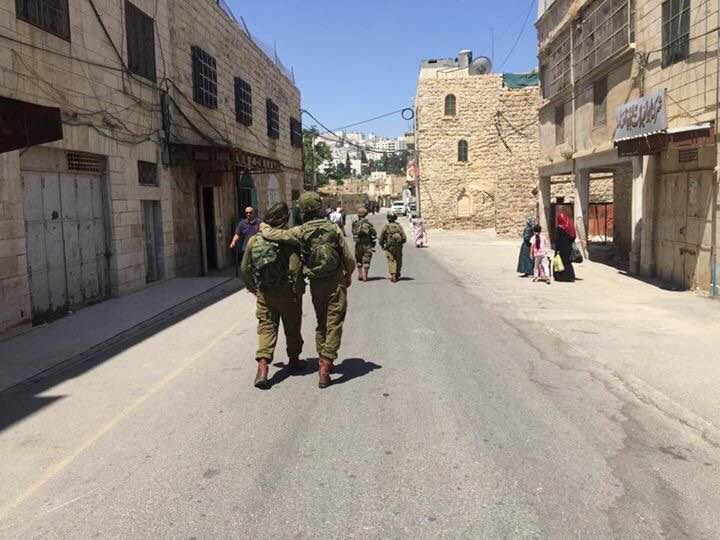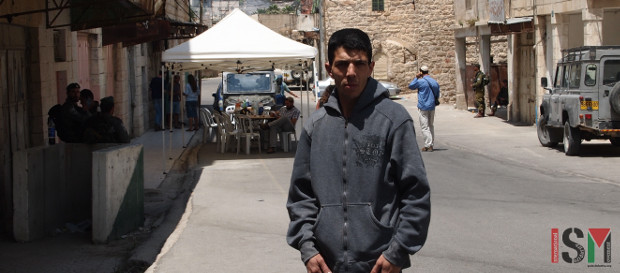Tag: Shuhada Street
-
Photo story: newly expanded Shuhada checkpoint is even more difficult to traverse
January 6th 2016 | International Solidarity Movement, al-Khalil Team | al-Khalil, occupied Palestine At the end of December Israeli forces re-opened the newly expanded Shuhada checkpoint in occupied al-Khalil (Hebron). The checkpoint had been closed since December 7th, when Israeli forces had declared they would be conducting “renovations” for a then-unknown period of time. Officially known as Checkpoint 56,…
-
Shuhada Street 2015: Suffering from Israeli propaganda and ongoing military closure
Hundreds Palestinian shops and warehouses were closed on Shuhada Street by the Israeli army in 1994 following the Ibrahimi Mosque massacre, in which twenty-nine Muslims were murdered during prayer inside Ibrahimi Mosque by Baruch Goldstein, a Jewish settler from Kiryat Arba. In the name of protecting Jewish settlers after the massacre of Palestinians during Ramadan,…
-
Settlers under the protection of Israeli forces prevent Palestinian shops from opening
24th June 2015 | International Solidarity Movement, Al Khalil Team | Al Khalil, Occupied Palestine Around 8:30 this morning on Shuhada street in Hebron, Israeli settlers, soldiers, and border police arrived and put up a breakfast tent right outside of two shops owned by a Palestinian man. The settlers remained in front of his shops…



